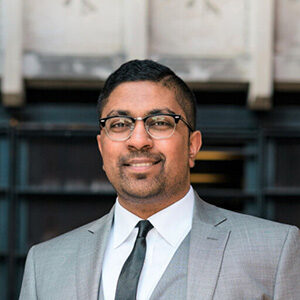This fall, 40 newly enrolled Master of Engineering (MEng) students began their coursework at U of T Engineering — and started preparing for job interviews.
Starting next May, they will spend eight months working with leading companies from Toronto and around the world through U of T Engineering’s brand-new MEng Extended Full-Time Co-op program.
“Our professional master’s students have been asking for practical, industrial experience to be part of their program for a long time, and we’re so pleased that we are able to deliver it,” says Professor Craig Steeves (UTIAS), U of T Engineering’s Acting Vice-Dean, Graduate.
The MEng is U of T Engineering’s course-based, professional master’s program, distinct from the Master of Applied Science (MASc) and the PhD.
As with the traditional MEng programs, the MEng Extended Full-Time Co-op program is available to both domestic and international students. It typically takes 24 months to complete: two semesters of course work, an eight-month work term, and another two course-based semesters.
Designed in close collaboration with the Engineering Career Centre, the MEng Extended Full-Time Co-op program builds on the success of the Professional Experience Year Co-op program (PEY Co-op), which is designed for undergraduate students.
“We’re tapping into the same global employer network that powers the PEY Co-op program, a set of partnerships we’ve been nurturing for more than 40 years,” says Steeves.
“On top of that, we’re providing essential support for resume building, interview practice and other skills that students need as they prepare for the job application process.”
One of these supports comes in the form of TEP 1701 Navigating Engineering Workplaces, a new graduate-level course created and taught by Professor Chirag Variawa (ISTEP), along with industrial engineering MASc student Sambea Cochrane (IndE 2T4 + PEY).
“Building community is an integral part of this course,” says Variawa.
“Students are coming from a variety of diverse backgrounds: some students have already had work experience, whether that’s in Canada or elsewhere, whereas other students are entering the classroom straight out of their undergrad.”
Variawa says that the course aims to help students develop a clear understanding of the engineering licensure process, as well as what it’s like to work for some of the many different types of organizations that hire engineers.

“We’ve started two of our term projects so far,” says Variawa.
“One requires students to interview an engineer in the Canadian workplace and reflect on what they’ve learned. In the second, students work in teams to research a real company/organization and take on roles such as HR manager, senior engineer or an intern currently working at the company.
“The goal of each team presentation is to attract the MEng students in the room to apply for that company/organization so that all students can see greater context that’s behind the internship process.”
Variawa says there is also instruction in engineering ethics, personal branding and value statements, interviewing skills and developing materials to showcase talent.
“The class is proceeding extremely well,” he says.
In the new year, the students will apply these skills as they interview for positions listed through U of T’s Engineering Career Centre. Roger Francis is the executive director of Engineering Careers and Experiential Learning at U of T.
“Students in this program will be able to access a broad range of the over 650 active industry partners in the Engineering Career Centre database,” says Francis.
“These include companies specializing in semiconductor design, AI, logistics, advanced manufacturing, aerospace, biomedical and industry leaders focused on solving some of the biggest challenges of our day.”
The 40 students currently enrolled in the program are just the beginning. Steeves says that the plan is to expand the MEng Extended Full-Time Co-op program to 120 spots starting in the fall of 2026. He expects those spots to get snapped up quickly.
“The value of a program like this is clear,” says Steeves.
“Students now get a full-time, paid work term that enables them to apply what they are learning in class directly to real challenges in their chosen field.
“Meanwhile, our partner companies get early access to an amazing pipeline of talent, and eight months provides lots of time for those students to make a real contribution. It’s a really beneficial arrangement.”






